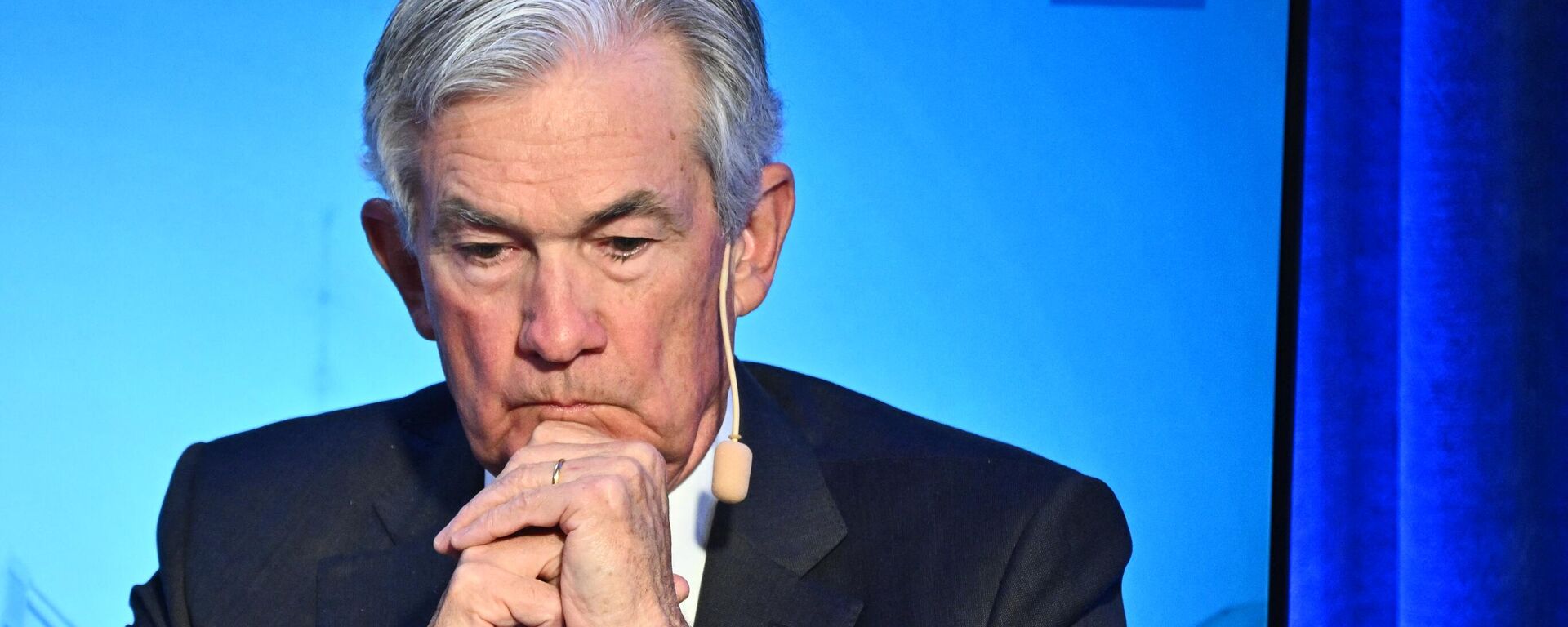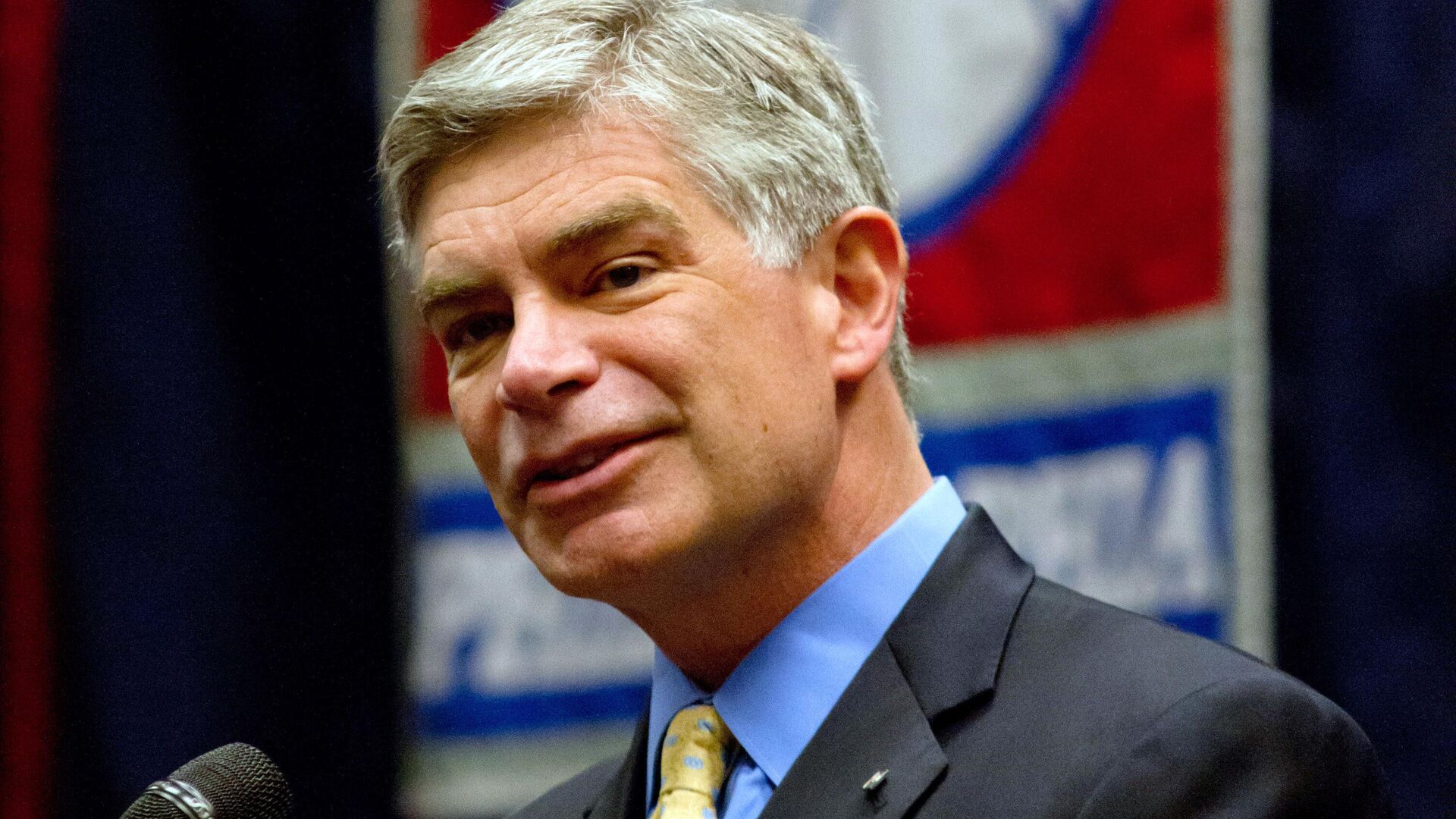https://sputnikglobe.com/20230214/fed-officials-say-us-consumer-report-shows-inflation-might-take-years-to-return-to-2-1107440506.html
Fed Officials Say US Consumer Report Shows Inflation Might Take Years to Return to 2%
Fed Officials Say US Consumer Report Shows Inflation Might Take Years to Return to 2%
Sputnik International
The latest reading on US consumer prices shows stickier-than-expected inflation that may take years for the Federal Reserve to normalize, and more rate hikes are required, policy-makers at the central bank said Tuesday.
2023-02-14T22:55+0000
2023-02-14T22:55+0000
2023-02-14T22:55+0000
americas
us
inflation
unemployment
consumer price index (cpi)
us federal reserve
https://cdn1.img.sputnikglobe.com/img/07e7/02/0e/1107440357_0:178:3009:1871_1920x0_80_0_0_a4201817137a23800731d16b1762ced8.jpg
"Today's inflation report shows that inflation is not moving down quickly," Patrick Harker, president of the Philadelphia Federal Reserve, said after the latest reading on the Consumer Price Index for All Urban Consumers, known in short as the CPI.John Williams, president at the New York Federal Reserve, said: "It will take several years to get inflation back to 2%."The CPI rose 6.4% in the 12 months to January, marking the smallest inflationary growth since October 2021. But a larger rise on the month raised questions on how comfortable the Fed would be in continuing to taper rate hikes.Monthly CPI rose by 0.5% in January after a 0.1% decline in December. Core month-on-month CPI, which strips out volatile food and energy prices, was up 0.4% in January, unchanged since December.The CPI hit a 40-year high in June when it grew at an annual rate of 9.1%, versus the Fed's inflation target of just 2% per annum. In a bid to control surging prices, the central bank added 450 basis points to interest rates since March via eight rate hikes.Prior to that, interest rates peaked at just 25 basis points, as the central bank slashed them to nearly zero after the global COVID-19 outbreak in 2020. The Fed began with a 25-basis point hike in March, then moved up to a 50-basis point increase in May. After that it executed four back-to-back jumbo-sized hikes of 75 basis points from June through November. Since then, it has returned to a more modest 50-basis point increase in December and a 25-basis point hike in February.Harker dismissed any notions that the Fed would be done soon with rate hikes. Even President Joe Biden seemed to agree. "There is still more work to do as we make this transition to more steady, stable growth, and there could be setbacks along the way," he said in comments issued by the White House.Williams, meanwhile, said US unemployment could rise to as high as 4.5% by next year from the current 3.4% as the Fed continues to raise rates.The labor market has been the juggernaut of US economic recovery from the pandemic, with hundreds of thousands of jobs being added without fail since June 2020 to make up for the initial loss of 20 million jobs to the COVID-19 crisis. Average monthly wages have also grown without stop since May 2021. The Fed has identified jobs and wage growth as among the principal drivers of inflation.
https://sputnikglobe.com/20230111/jerome-powell-warns-of-feds-unpopular-moves-to-restore-price-stability-1106213580.html
americas
Sputnik International
feedback@sputniknews.com
+74956456601
MIA „Rosiya Segodnya“
2023
Sputnik International
feedback@sputniknews.com
+74956456601
MIA „Rosiya Segodnya“
News
en_EN
Sputnik International
feedback@sputniknews.com
+74956456601
MIA „Rosiya Segodnya“
Sputnik International
feedback@sputniknews.com
+74956456601
MIA „Rosiya Segodnya“
us cpi 2023 report, patrick harker president of the philadelphia federal reserve, john williams president at the new york federal reserve, us inflation crisis 2023, us post covid economic, us job market, us annual monthly inflation,
us cpi 2023 report, patrick harker president of the philadelphia federal reserve, john williams president at the new york federal reserve, us inflation crisis 2023, us post covid economic, us job market, us annual monthly inflation,
Fed Officials Say US Consumer Report Shows Inflation Might Take Years to Return to 2%
WASHINGTON (Sputnik) - The latest reading on US consumer prices shows stickier-than-expected inflation that may take years for the Federal Reserve to normalize, and more rate hikes are required, policy-makers at the central bank said Tuesday.
"Today's inflation report shows that inflation is not moving down quickly," Patrick Harker, president of the Philadelphia Federal Reserve, said after the latest reading on the Consumer Price Index for All Urban Consumers, known in short as the CPI.
John Williams, president at the New York Federal Reserve, said: "It will take several years to get inflation back to 2%."
The CPI rose 6.4% in the 12 months to January, marking the smallest inflationary growth since October 2021. But a larger rise on the month raised questions on how comfortable the Fed would be in continuing to taper rate hikes.

11 January 2023, 06:13 GMT
Monthly CPI rose by 0.5% in January after a 0.1% decline in December. Core month-on-month CPI, which strips out volatile food and energy prices, was up 0.4% in January, unchanged since December.
The CPI hit a 40-year high in June when it grew at an annual rate of 9.1%, versus the Fed's inflation target of just 2% per annum. In a bid to control surging prices,
the central bank added 450 basis points to interest rates since March via eight rate hikes.
Prior to that, interest rates peaked at just 25 basis points, as the central bank slashed them to nearly zero after the global COVID-19 outbreak in 2020. The Fed began with a 25-basis point hike in March, then moved up to a 50-basis point increase in May. After that it executed four back-to-back jumbo-sized hikes of 75 basis points from June through November. Since then, it has returned to a more modest 50-basis point increase in December and a 25-basis point hike in February.
Harker dismissed any notions that the Fed would be done soon with rate hikes.
"In my view, we are not done yet … but we are likely close," he said. "At some point this year, I expect that the policy rate will be restrictive enough that we will hold rates in place and let monetary policy do its work. We need to maintain [the] 25-bp interest-rate path."
Even President Joe Biden seemed to agree. "There is still more work to do as we make this transition to more steady, stable growth, and there could be setbacks along the way," he said in comments issued by the White House.
Williams, meanwhile, said US unemployment could rise to as high as 4.5% by next year from the current 3.4% as the Fed continues to raise rates.
The
labor market has been the juggernaut of US economic recovery from the pandemic, with hundreds of thousands of jobs being added without fail since June 2020 to make up for the initial loss of 20 million jobs to the COVID-19 crisis. Average monthly wages have also grown without stop since May 2021. The Fed has identified jobs and wage growth as among the principal drivers of inflation.





